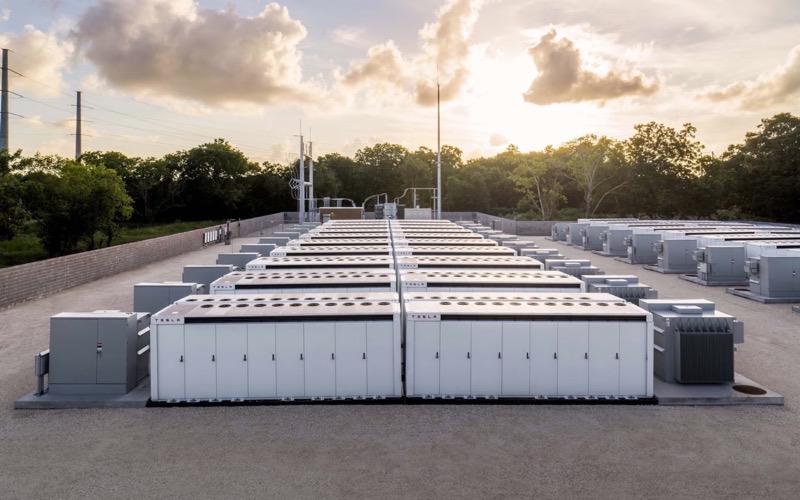140 Tesla Megapacks to Power Energy Storage Sites in Massachusetts

In a significant boost to Massachusetts’ renewable energy goals, the state’s Energy Siting Facilities Board has given the green light to two major energy storage projects.
The facilities, Cranberry Point Energy Storage and the Medway Grid, will collectively contribute 400 MW/800 MWh of storage capacity. This step effectively meets 80% of the state’s energy storage deployment goal of 1 GWh by 2025, reports PV Magazine.
Medway Grid, located in Medway, Massachusetts, will be positioned within the Eversource utility region and will connect to an Eversource substation. The site plans to host 140 Tesla Megapacks, using lithium ion phosphate technology.
Meanwhile, the Cranberry Point facility, spearheaded by San Francisco’s Plus Power, has been in development since 2017 and will also employ Tesla Megapack batteries. Located in Carver, Massachusetts, the facility will also connect to an Eversource substation and serve the entire New England region.
These ambitious projects were initially considered outside the Massachusetts Energy Facilities Siting Board’s jurisdiction, which led to further project deliberations. However, the board eventually overturned these rulings and issued zoning by-law exemptions at the end of June, thereby paving the way for construction.
Local environmental group, Save the Pine Barrens, had objected to the projects, arguing that these facilities couldn’t be categorized as ‘generators’ since they capture, store and redistribute electricity. The board, however, asserted that the units indeed qualify as generating units and are essential for the state to achieve its renewable energy goals.
The recent rulings also saw then Attorney General, now Governor, Muara Healey invalidating the City of Carter’s moratoria on solar and battery projects. Healey argued that the moratoria unjustifiably restricted solar and storage systems and hindered the state’s solar energy policy. The board agreed with her, stating that the alternate site suggestions or the “no build” option wouldn’t serve the public interest.
With this decision, the state of Massachusetts is set to take a giant leap forward in realizing its renewable energy targets.